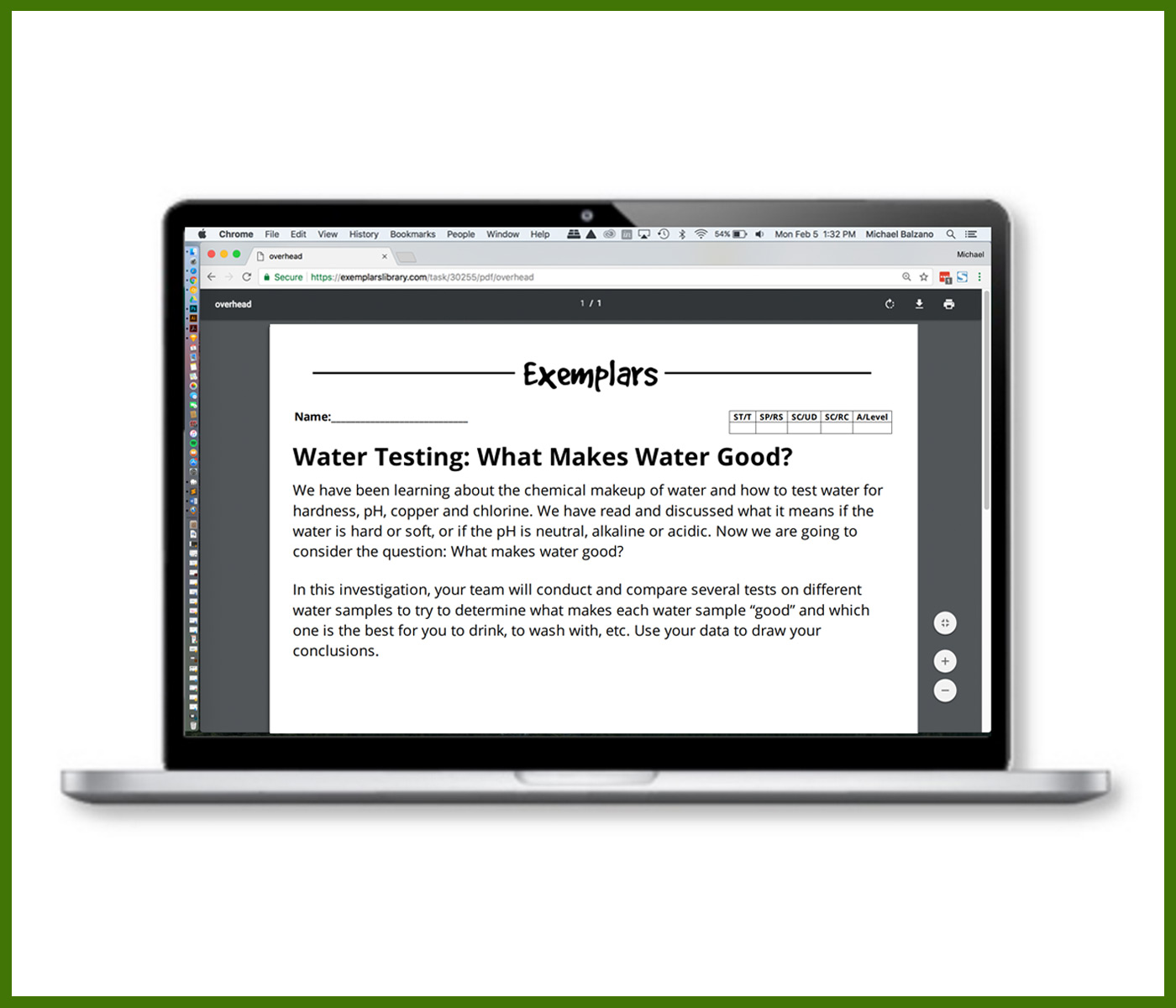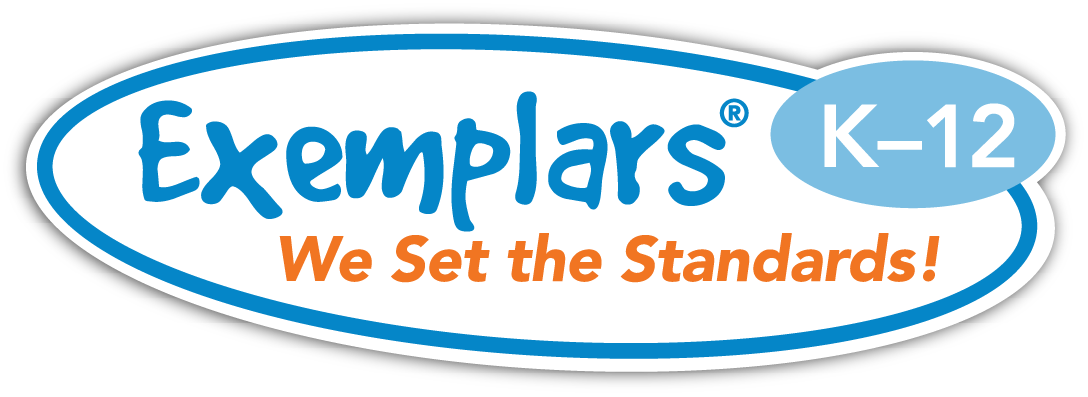Science Resources
Rubrics
Exemplars science rubrics are excellent tools for assessing student work and for encouraging student self- and peer-assessment. Our performance material includes standards-based rubrics that define what work meets today's standards, allowing teachers (and students) to distinguish between different levels of performance. We also provide tips on how to introduce your students to rubrics.
See all Exemplars science rubrics »
Sample Performance Tasks

Exemplars inquiry-based investigations provide teachers and administrators with a way of teaching and assessing science-process and communication skills. Our performance tasks are classroom tested and can be used for assessment, instruction, and/or professional development.
Anchor Papers
In addition to rubrics, Exemplars performance material also includes annotated anchor papers for every investigation. Samples of student work are provided at each of the four levels of the Exemplars rubric: Novice, Apprentice, Practitioner (meets the standard), and Expert. The marked annotations identify important distinctions for teachers to look for when assessing students. Learn more »
Student Communication
Communication is fundamental. It is not only the vehicle by which we convey our thinking to others, but it is the way in which we process information. As we organize our thoughts to communicate, we learn content – understanding how to communicate that content must be considered a basic skill in our schools today.
From the beginning, Exemplars science rubrics have included criteria focused on communication. Students' work must concentrate on communication, or it will not meet the (Exemplars) standard. Learn more »
Science Literature Links
Exemplars science tasks are linked to children's literature for grades K-5. We have broken these down to align with NGSS and non-NGSS curricula.
Getting Started
For more than two decades, Exemplars has worked with schools and districts to integrate performance-based assessment and instruction into science curriculum. To help your school or district get started with Exemplars, check out our Administrator's Tools for Success.
Tips for Using
Exemplars makes it possible for schools, districts, and teachers to implement excellent performance-based assessment and instruction. Below are some suggestions from experienced Exemplars users and workshop participants to assist with your success.
- Select a science task of the month
- Select several science tasks to do in common and then get together to assess the work and discuss students' performance
- Correlate Exemplars science tasks with your textbooks, frameworks and/or curriculum
- Use the Exemplars assessment rubrics
- Share anchor papers and kid-friendly rubrics with students
- Refer to the "Getting Started" section of the Science Library
- Be sure your teachers are aware that Exemplars tasks are available and readily accessible for use in their classrooms
- Support your staff with professional development
- Select and train "mentor teachers"
- Read Exemplars Science Blogs
- Check out Exemplars YouTube Channel to see and learn how schools/districts are implementing our material.

